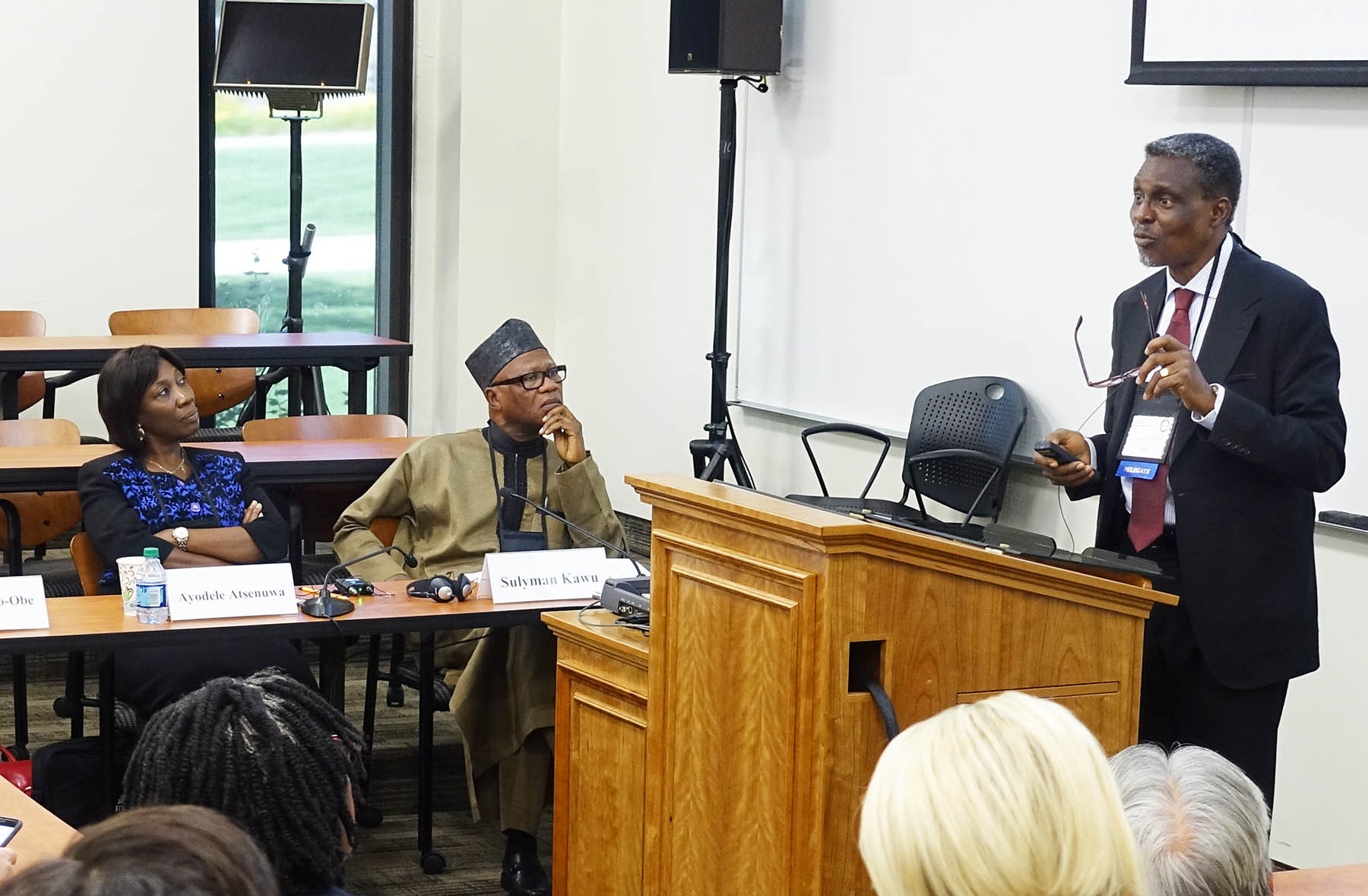Symposium 2016: Nigeria

by Ryan Hughes
In a session moderated by Christine Hurt, Associate Dean and Professor of Law at J. Reuben Clark Law School, Sulyman Kawu, Ayodele Atsenuwa, and Akin Ibidapo-Obe, all from Nigeria, discussed the realities of religious liberty in Nigeria, the problems facing it, and what is being done to strengthen these vital freedoms.
Sulyman Kawu, Chief Judge at the Kwara State Judiciary, discussed the religious pluralism that exists in Nigeria today and how that is an improvement over past decades. He talked about how the state actively supports both Muslims and Christians and how different religious groups have learned to live side-by-side and cooperate together. He brought up several issues that Nigeria has been struggling with over the past couple years. First, he talked about the need in Nigeria to let girls wear headscarves in classrooms because they should have the freedom to do so. He brought up several cases where the court has gone one way or the other on hijab wearing at public schools and pointed out that there needs to be consensus on this issue. He also discussed religious extremism in Nigeria. He pointed out the horrors that have been committed by Boko Haram and the steps the state is taking to stop them. He also pointed out the need for Christians and Muslims to continue to learn more about each other in order to build understanding and tolerance which will decrease violence.
Ayodele Atsenuwa, Dean and Professor of the Department of Public Law at the University of Lagos, discussed religious pluralism and religious rights in Nigeria. She pointed out the different demographics in the north and south of Nigeria. The north is home to a majority Muslim population and the south is home to a majority Christian population. However, she stated that religious pluralism needs to exist throughout the country for both of these religions and the other minority groups that are scattered around the entire country. She also listed the religious rights guaranteed by the constitution before describing how these rights are frequently violated through several different examples.
Akin Ibidapo-Obe, Professor and former Dean of the law faculty at the University of Lagos, discussed the abduction, seduction, and forced matrimony of girls throughout Nigeria. Although this phenomenon has been made infamous by Boko Haram, this problem has been evident for years. Generally, Muslim men will kidnap Christian girls and force them to convert to Islam before marrying them. Because converting from one religion to another is a personal affair, the police are often no help in these situations. They state that the girl still had a “choice.” Ibidapo-Ope gave numerous example of girls who have been kidnapped and the resulting physical, emotional, and sexual abuse. He also stated that international outcry over specific incidents have led to girls being returned and the state deciding to prosecute the kidnappers. However, if there is no intense pressure the girls are likely to be stuck in these forced marriages for the rest of their lives.